Family member had a successful and caring experience here with his substance abuse issues. Staff was super friendly and knowledgeable. Admissions process was painless and facilities are clean and welcoming.
About Heartfelt Recovery Centers
Heartfelt recovery is a leading provider of comprehensive addiction treatment services. With a strong commitment to helping individuals overcome addiction, co-occurring disorders, and reclaim their lives. We offer a heartfelt and personalized approach to treatment.Our dedicated team of professionals is passionate about supporting individuals on their journey to recovery, providing the highest quality care and support every step of the way.
At Heartfelt Recovery Centers, we understand that addiction is a complex and deeply personal struggle. Thats why we believe in treating the whole person, addressing the physical, emotional, and psychological aspects of addiction. Our evidence-based treatment program are tailored to meet the unique needs of each individual, ensuring that they receive the personalized care and support necessary for lasting recovery.
What sets Heartfelt apart is our unwavering commitment to creating a safe and supportive environment for healing and growth. We believe in fostering a sense of community and connection among our clients, providing a space where they can feel understood, supported, and encouraged to pursue lasting recovery.
If you or a loved one is struggling with addiction or any co-occurring disorder, we invite you to reach out to Heartfelt Recovery Centers. Our dedicated team is ready to provide the guidance, support, and resources needed to embark on the path to recovery, Together we can overcome addiction and embrace a brighter. healthier future.
Latest Reviews
Rehab Score
Gallery
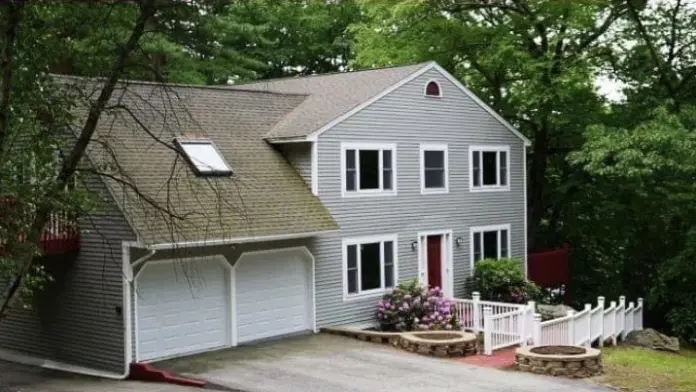
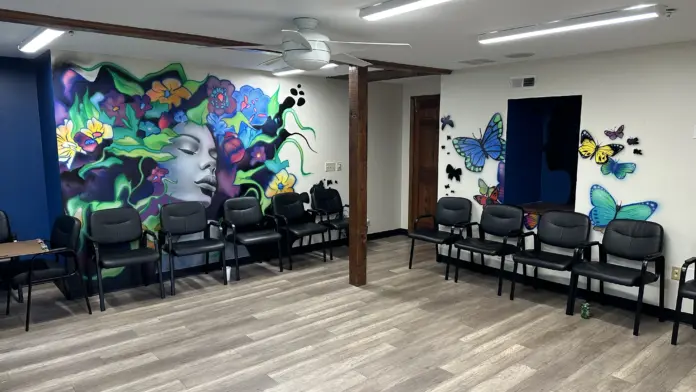
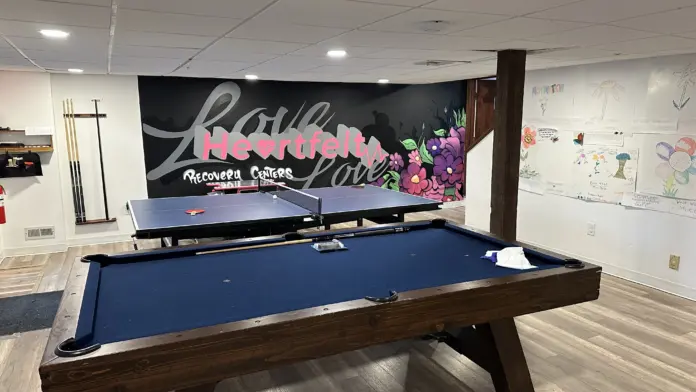
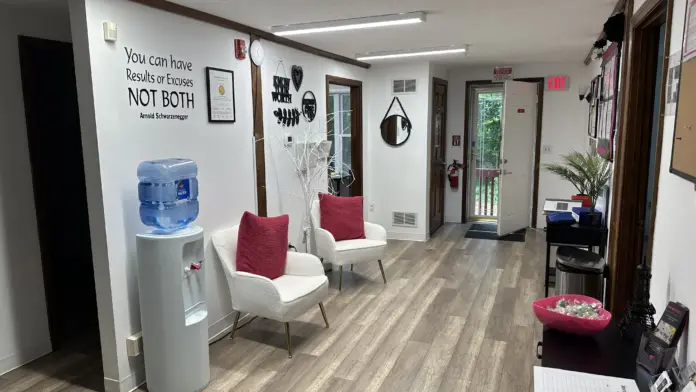
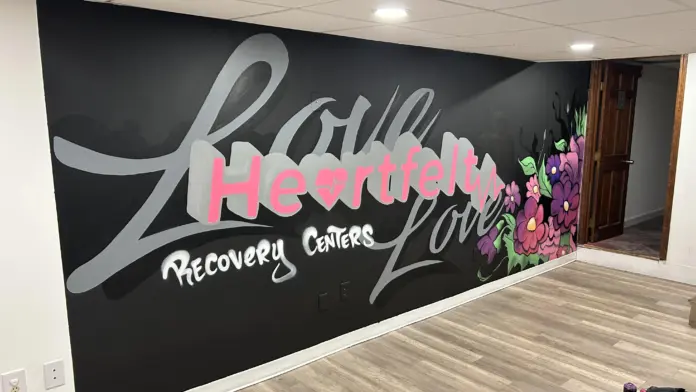


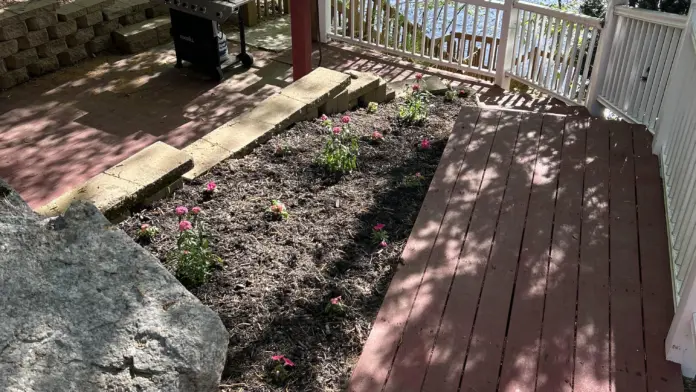
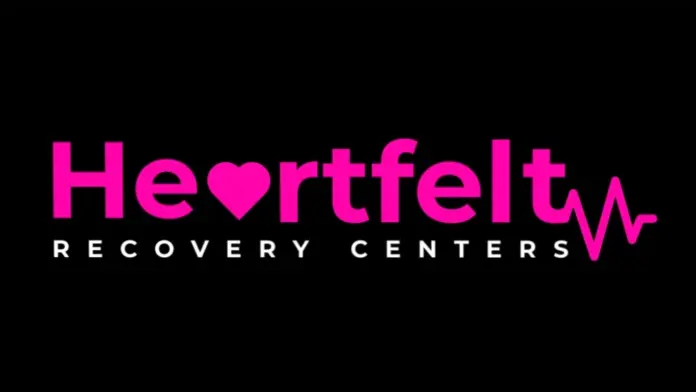
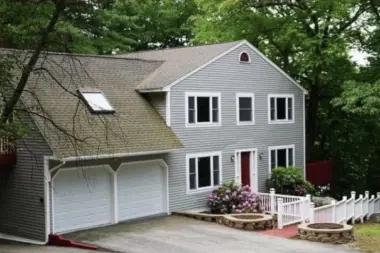
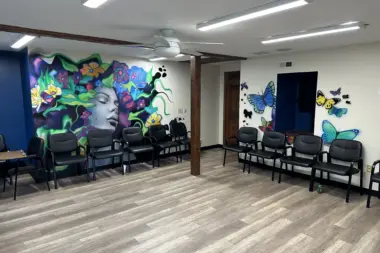
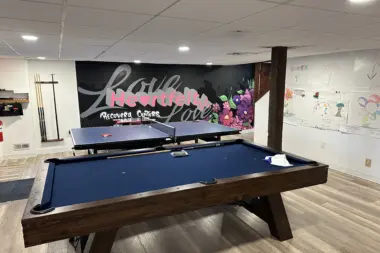
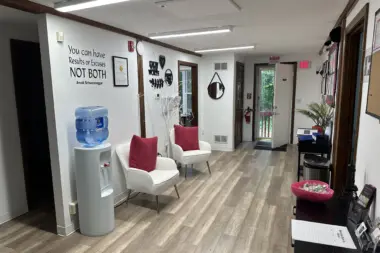
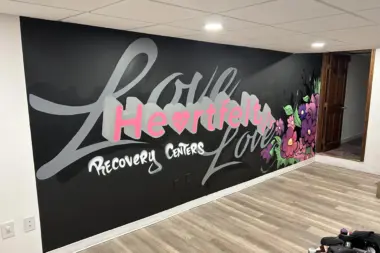


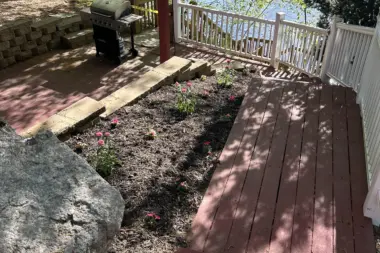
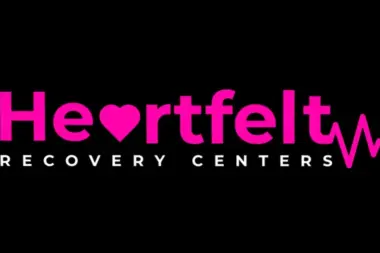
Accepted Insurance
Other Forms of Payment
Self-pay involves paying for treatment out of your own pocket. You can use savings or credit, get a personal loan, or receive help from family and friends to fund your treatment. If you don't have insurance or your insurance plan doesn't cover a specific program, self-pay can help ensure you still get the care you need.
Private insurance refers to any kind of healthcare coverage that isn't from the state or federal government. This includes individual and family plans offered by an employer or purchased from the Insurance Marketplace. Every plan will have different requirements and out of pocket costs so be sure to get the full details before you start treatment.
Financial aid can take many forms. Centers may have grants or scholarships available to clients who meet eligibility requirements. Programs that receive SAMHSA grants may have financial aid available for those who need treatment as well. Grants and scholarships can help you pai for treatment without having to repay.
Private insurance refers to any kind of healthcare coverage that isn't from the state or federal government. This includes individual and family plans offered by an employer or purchased from the Insurance Marketplace. Every plan will have different requirements and out of pocket costs so be sure to get the full details before you start treatment.
Addiction Treatments
Levels of Care
Clients undergoing treatment at an outpatient rehab reside in their own homes and engage in counseling and recovery education sessions in the evening, at night, or on the weekend. This ensures clients' access to care while working, caregiving, or attending school. Outpatient treatment is often the next level of care for clients stepping down from inpatient care, though some clients enroll immediately after completing detox. Many programs offer medication assisted treatment (MAT) for those in alcohol or opioid recovery.
Rehab aftercare programs provide continuing care for clients in an advanced phase of recovery, including those who have completed detox and intensive inpatient treatment. These clients typically have already engaged in many hours of addiction counseling and recovery education. Drug rehab aftercare supports clients in maintaining their sobriety at home, in the workplace, and in the community. Case managers and care teams advise clients on the resources they may need to promote their sustained sobriety.
Clients in addiction recovery often enroll in inpatient rehabs to receive intensive, hands-on, highly supervised treatment. These programs are generally designed for clients exiting detox and those who are at an increased risk of relapse. Clients reside at the treatment center and engage in multiple psychotherapeutic sessions each week. Inpatient addiction counseling often includes individual, group, and family therapy. Education and life skills training are also often prioritized to promote sustained sobriety. Some inpatient rehabs include holistic therapies, such as massage and animal therapy.
Intensive outpatient programs (IOP) offer high-level transitional support for clients exiting inpatient rehab. They can also be effective for clients at significant relapse risk Intensive outpatient treatment typically involves between nine and 20 hours of care per week, with the frequency and intensity of treatment decreasing as clients progress in their recovery. Most IOP clients participate in a combination of psychotherapy, recovery education, holistic therapies, and, for some, medication assisted treatment (MAT).
12 step programs are often considered the gold standard in addiction treatment. They are based on personal growth and intensive peer support. Participants are expected to regularly attend 12 step meetings, which are free, anonymous, and open to the public. They are also required to select a peer sponsor to mentor them as they work through the steps of recovery, which are based on non-denominational spiritual principles designed to foster understanding, forgiveness, accountability, and acceptance.
The aim of a medically supervised detox is to minimize withdrawal symptoms while removing alcohol and drugs from your system under 24/7 medical supervision and keep you as safe and as comfortable as possible. Medical detox is usually the first step in the recovery process as a whole, and it can take about 5-7 days to complete. This process is usually at least partially covered by most insurance plans.
Residents of a sober living home in New Hampshire commit to abstaining from drug and alcohol use and to abiding by the house rules. This communal living environment, also called a halfway house, provides a supportive community where people in recovery can start a new life free from substances. Typical house rules include individual room maintenance, shared meal times, curfews, and 12-step meeting attendance.
If you need short-term intensive rehabilitation care that allows you to return home at the end of the day, a partial hospitalization program (PHP) is the ideal solution. PHP provides structured programming that typically includes therapeutic services, relapse prevention, and medication management. Typically, treatment can run between 3-5 days a week for an average of 90 days. The cost for a partial hospitalization program can vary, but is often covered by providers.
Examples of telehealth services in New Hampshire include on-demand provider education, physician consultations, counseling sessions, and public health announcements. These services utilize communications technology to deliver healthcare services to providers and patients.
Treatments
Alcohol use disorder (AUD) is a condition characterized by drinking that causes distress or harm. Also called alcoholism, this alcohol addiction can be classified as mild, moderate, or severe. Various treatments for alcoholism can be classified as social, psychological, and physiological. Options include inpatient or outpatient alcohol rehab in New Hampshire, 12-step groups, and faith-based recovery programs.
Instead of trying to quit on your own, opioid rehab in New Hampshire involves treating the opioid use disorder while you're under the care of recovery experts and medical staff. Evidence-based treatments and therapies are combined in either an inpatient or an outpatient setting, equipping you with the tools and knowledge to succeed in long-term recovery.
Treatment provided at drug rehab in New Hampshire prepares individuals to handle life stressors without using substances. Participants get the tools and support they need to maintain lifelong recovery.
In New Hampshire, dual-diagnosis addiction treatment programs prioritize comprehensive care for individuals with co-occurring substance use disorders and mental health conditions. Offering a full continuum of care, you can generally choose from inpatient residential rehab, or outpatient programs. Treatment includes therapies such as cognitive behavioral therapy, or dialectical behavioral therapy, process groups, family counseling, skills training, and psychoeducation to uncover the root causes of your addiction, improve mental health, and achieve and sustain your recovery. Addiction and mental health experts help to create a comprehensive aftercare plan that will your long-term success.
In New Hampshire, individuals can benefit from rehab programs that provide substance abuse treatment on an inpatient or outpatient basis. These programs typically utilize evidence-based therapies such as cognitive-behavioral therapy (CBT), dialectical behavior therapy (DBT), and experiential therapies, together with family counseling, individual, and group meetings. These critical interventions provide an effective treatment program that will help you achieve sobriety and maintain it in the long-term.
Programs
Adult rehab programs include therapies tailored to each client's specific needs, goals, and recovery progress. They are tailored to the specific challenges adult clients may face, including family and work pressures and commitments. From inpatient and residential treatment to various levels of outpatient services, there are many options available. Some facilities also help adults work through co-occurring conditions, like anxiety, that can accompany addiction.
Young adulthood can be an exciting, yet difficult, time of transition. Individuals in their late teens to mid-20s face unique stressors related to school, jobs, families, and social circles, which can lead to a rise in substance use. Rehab centers with dedicated young adult programs will include activities and amenities that cater to this age group, with an emphasis on specialized counseling, peer socialization, and ongoing aftercare.
Clinical Services
People experience long term benefits from group therapy sessions that build a strong support network and create lasting connections that you can use throughout your recovery efforts. Building relationships within a group therapy environment helps enhance your social skills and reduce your stress levels, all contributing to promoting sobriety.
Individual therapy is available to people in New Hampshire seeking drug and alcohol addiction treatment. This offers a personalized approach to understanding your background and triggers. During therapy, you and your therapist collaborate to develop effective coping strategies that ensure you receive a comprehensive approach to foster lasting change.
The focus of family therapy in New Hampshire is to strengthen the family unit by fostering mutual support among the members. Each member learns effective communication strategies that help to create a nurturing environment. This strength and family bonds and supports your loved one's path to recovery.
The goal of trauma therapy is to address the lingering emotional and physical effects that traumatic experiences can have on your life. Therapists help you to process the traumatic event so you can more easily manage your physical and emotional responses and develop compassion for yourself.
Cognitive behavioral therapy in New Hampshire involves several steps to healing. The therapist will first help you identify stressful conditions currently in your life. You’ll then identify your thoughts and beliefs about these challenges. Next, you’ll identify inaccurate thoughts, and lastly you’ll change those thought patterns, which will lead to changed behavior.
If you participate in couples therapy in New Hampshire, you can expect to attend an average of 12 sessions. These may include individual and joint sessions with the counselor. Therapy will likely focus on learning skills to resolve conflict and successfully manage relationship challenges.
When you develop life skills during drug rehab in New Hampshire, you learn how to adapt to challenging situations and tasks. You learn coping strategies and techniques that allow you to live a healthy, sober lifestyle.
Dialectical behavior therapy is a form of talk therapy. While it’s similar to cognitive behavioral therapy, it adds a focus on intense emotions. Its goal is to help you learn to manage difficult feelings and make positive changes.
Rational behavior therapy supports addiction treatment and recovery by helping you recognize and challenge dysfunctional thought patterns. Therapy is typically a short term approach that focuses on achieving tangible results by restructuring thought patterns and using emotional regulation techniques. This helps maintain long term sobriety.
To recover from addiction your body needs the proper nutrients for healing. Nutrition therapy during drug rehab in New Hampshire provides a dietary plan for optimal results. This treatment will train you how to eat the foods you need for energy and rejuvenation.
Amenities
-
Private Setting
-
Residential Setting
-
Yoga Studio
-
Private Transportation
-
Hiking
-
Private Rooms
-
Wifi
-
Mountain Views
Accreditations

The Joint Commission, formerly known as JCAHO, is a nonprofit organization that accredits rehab organizations and programs. Founded in 1951, the Joint Commision's mission is to improve the quality of patient care and demonstrating the quality of patient care.
Joint Commission Accreditation: Yes

LegitScript has reviewed Heartfelt Recovery Centers as part of their certification program, and has determined that it meets the LegitScript standards for legality, safety and transparency.
LegitScript verified in Jan 2024
Contact Information
41 Sagamore Park Rd
Hudson, NH 03051






